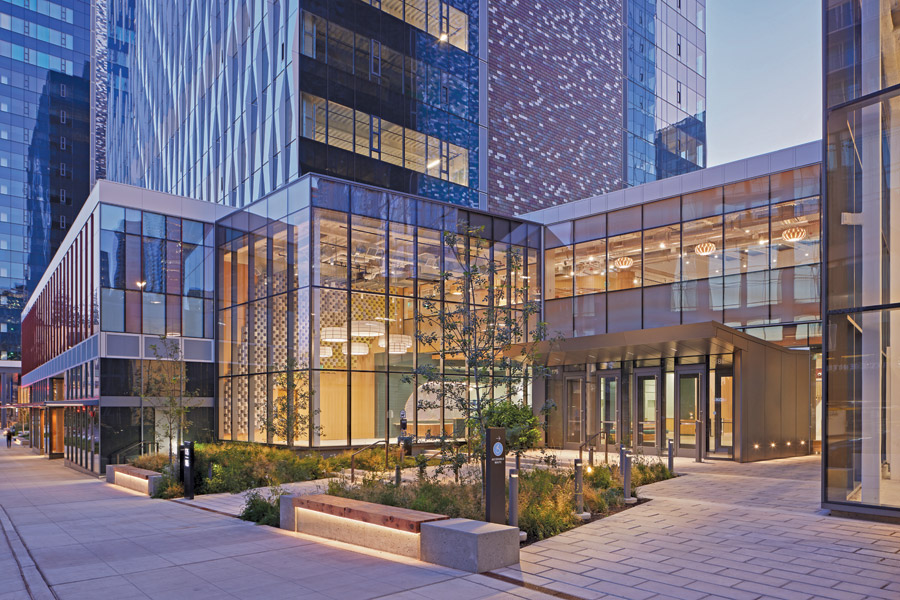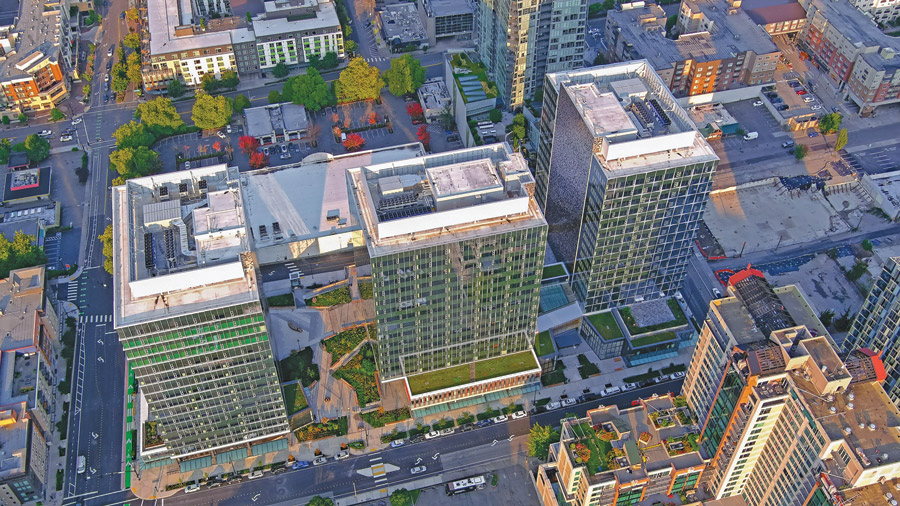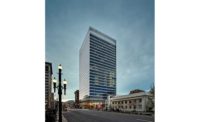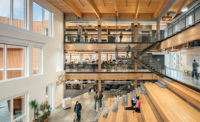ENR Northwest 2024 Best Projects
Best Office/Retail/Mixed-Use: West Main

Photo by Benjamin Benschneider
WEST MAIN
Seattle
BEST PROJECT
Submitted by: GLY
OWNER: Vulcan Real Estate
LEAD DESIGN FIRM: Graphite Design Group
GENERAL CONTRACTOR: GLY
CIVIL/STRUCTURAL ENGINEER: Coughlin Porter Lundeen
MEP ENGINEER: Stantec
DESIGN ARCHITECT: Compton Design Office
LANDSCAPE ARCHITECT: GGN
GEOTECH CONSULTANT: Geoengineers
MECHANICAL/PLUMBING DESIGN/BUILD: McKinstry Co.
ELECTRICAL DESIGN/BUILD: Prime Electrical Services LLC
FIRE PROTECTION: Western States Fire Protection
SUBCONTRACTORS: A & B Fabricators Inc.; Acoustical Design Inc.; Advance Forming Solutions; Air Placed Concrete Specialist Inc.; All New Glass Inc.
With three towers and more than 1 million sq ft of space, this mixed-use office and retail development is reshaping Seattle’s skyline. The buildings share a common podium and 34,000 sq ft of retail space. Two of the towers, north and south, are 17 stories tall and the center tower has 16 floors.
Each building has its own offset core design that preserves surrounding mountain views, minimizes overlooking between buildings and maximizes daylight. A total of 80,000 millennium tiles are installed across the three towers, covering the same area as 1.5 football fields—and each hand-laid tile was individually placed. All three towers have unique facade patterning, graphite gray podium walls and white tower fins emphasizing the pattern of each tower.

Photo by Pacific Coast Surveys
Interior faces feature a smooth structural sealant glazing (SSG) curtain wall system with gray-tinted glazing. The podium glazing is clear, while common platinum-colored curtain wall framing across all towers provides structural coherence.
West Main connects Bellevue’s Old Town to downtown with a walk-through plaza, significantly expanding the city’s walkability. As a central focal point in Bellevue’s urban landscape, the three buildings bridge the urban core with suburban surroundings through strategic landscaping and pedestrian-friendly exteriors. To compensate for a 20-ft grade change from north to south, a large central plaza sits at the low point of the site’s swale.

Photo by Benjamin Benschneider
With such an expansive project, precision was crucial. An initial BIM execution plan facilitated a successful clash detection process across seven models, resulting in zero rework at installation. The team spent about 1.5 years’ worth of time on modeling efforts, which streamlined significant design changes such as adding operable windows and eliminating natural gas lines.
Leveraging Versatile’s CraneView technology, which attaches to a tower crane hook and measures thousands of construction data points with each pick cycle, the team also identified areas for improvement in site logistics and crane movement, enhancing both the schedule and safety.

Photo by Pacific Coast Surveys
To enable maximum future flexibility, the mechanical and electrical systems are bifurcated, allowing for easy expansion and build-outs. Although the towers are joined via a common podium and garage, each tower acts as its own building.
Firefighter air replenishment systems (FARS) are strategically located throughout the buildings to quickly refill tanks that are already part of firefighters’ normal equipment. While cities across 21 other states require FARS, West Main is the first in the Puget Sound region, which has mandated FARS in all new high-rise buildings and transportation tunnels more than 300 ft long that applied for building permits as of 2018.
West Main was completed on time and within budget in September 2023, and the project is pursuing LEED Gold certification.



